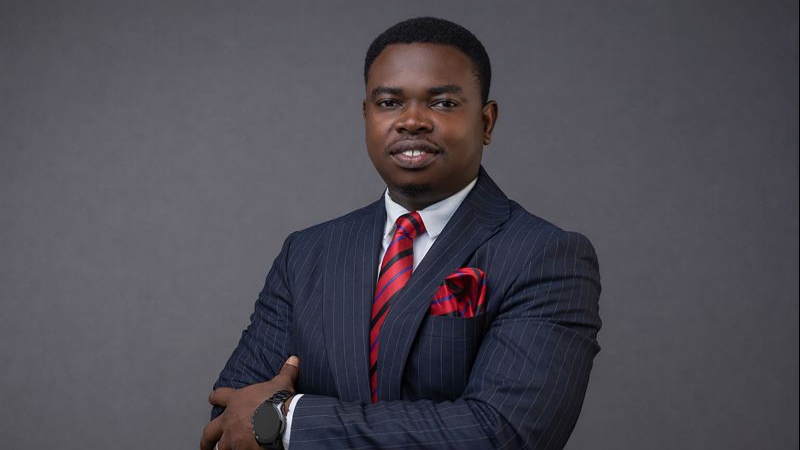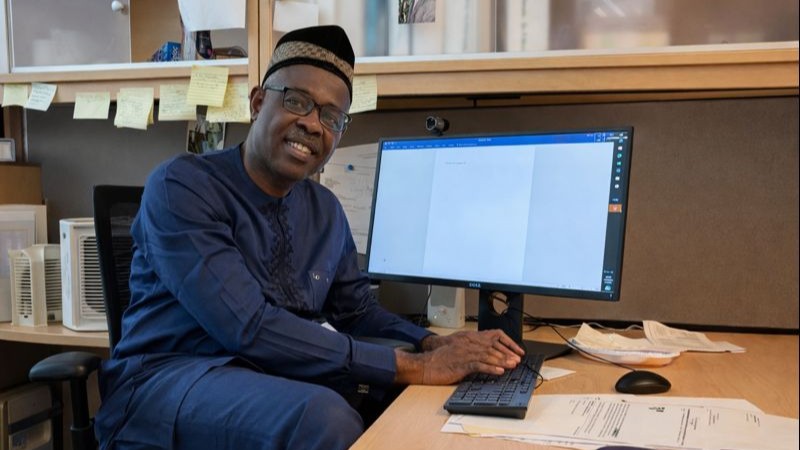Hamzat Ayodele Subair: Revolutionising tax administration, increasing Lagos IGR
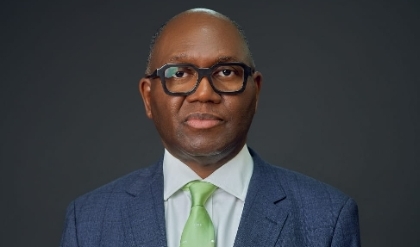
With over four decades of expertise in accounting, taxation, management consulting, and governance, Dr. Hamzat Ayodele Subair has assiduously worked his way to the top, emerging as one of the notable voices in matters concerning taxation and the financial sector in the country.
Becoming the Executive Chairman of Lagos State Internal Revenue Service (LIRS) in 2016, the indefatigable inventive administrator has led a quiet revolution in tax administration and improved internally generated revenue in the State.
The introduction and implementation of the Enterprise Tax Administration System (eTax) in the State facilitated tax processes, documentations, and filing procedures, allowing taxpayers to meet their obligations with minimal disruption to their daily operations. This policy has boosted tax compliance and also astronomically increased Lagos State’s IGR, thus making Lagos the envy of other States in the country.
Focused on results, the pragmatic leader in 2024 led the agency to outperform expectations, generating over ₦1 trillion in revenue; a feat no sub-national tax authority in the country has ever accomplished. This laudable feat contributes to making LIRS a beacon of transformation and demonstrating how strategic reform, digital innovation and customer-centric governance can redefine tax administration at the sub-national level.
Knowing the importance of human and material resources, Dr. Subair has prioritised staff training and welfare, taxpayer education, and system integrity to ensure that the Agency remains a model of institutional excellence in the Country, aside from being a cash cow for Lagos, which is the economic nerve centre of Nigeria.
Armed with a first degree in Economics from the Metropolitan University of Manchester, a Master’s in Business Administration from the University of Lagos, Subair sets out to put his knowledge into practice and has since been at the forefront of his career, impacting lives, businesses and the economy.
Apart from his first and second degrees, the tax administrator is a fellow of the Institute of Chartered Accountants of Nigeria (ICAN), the Chartered Institute of Taxation of Nigeria (CITN), and an associate member of the Business Recovery and Insolvency Practitioners Association of Nigeria (BRIPAN).
In pursuance of further knowledge, Subair went to Harvard Kennedy School, where he took courses on digital transformation in government, comparative tax policy and administration, strategic management of regulatory enforcement agencies, and public policy.
He also took courses at the Wharton School of the University of Pennsylvania and the London Business School, aside participating in the Joint Tax Board regulated specialised courses in Fintech, block chain, and crypto currency, among others held in Istanbul, Kigali and Dubai.
For his industry and academic prowess, Adekunle Ajasin University, Akungba-Akoko, in 2024 honoured him with a doctorate degree in business administration.
Before taking the helm of affairs of the Lagos State Internal Revenue Service (LIRS), he had served different organisations in various leadership positions. He was a senior audit officer at Price WaterHouse Chartered Accountants, to Partner at Hamzat Subair Folami & Co, and later Managing Partner at Hamzat Subair & Co, where he worked with various business entities, multinational corporations, agencies, and government institutions to improve their compliance and fiscal responsibility.
He has served as country representative and project coordinator for Centre for Development of Enterprise (CDE), aside consulting for international agencies, including International Finance Corporation (IFC) in the appraisal of management systems of medium-sized companies and Small-medium Enterprises (SME) seeking equity funding.
Established in 2006 through the Lagos State Revenue Administration Law and guided by an unwavering commitment to service, transparency, and innovation, LIRS has consistently championed reforms to modernise tax administration and improve public trust.
Under the leadership of successive administrations, particularly Governor Babajide Sanwo-Olu, the Agency has received strategic support in the form of capital investments, digitisation infrastructure, human resource development, and operational realignment.
Key reform strategies include the creation of specialised operational units such as intelligence, new-growth areas(entertainment), harmonisation of directorates, and the adoption of global best practices through regular staff training and participation in international tax forums.
Spurred by the drive to further grow and develop Lagos State through the role of taxation as a cornerstone for sustainable development across the globe, the agency shifted its transformation policy towards service delivery, deployed a fully digitised Enterprise Tax Platform (eTax), offering end-to-end services from registration and filing to assessment forms, objections and payments.
Complementing these are self-service channels such as e-TCC issuance, FAQs, and interactive digital campaigns that explain taxpayer obligations and rights.
It also segmented taxpayers into formal and informal categories for assessment, and through this, LIRS has designed targeted strategies to enhance compliance and support inclusivity. With over 40 mini tax offices established in major markets across the State, the Agency brings its services closer to informal sector actors, supported by public sensitisation campaigns and responsive contact centres. The flagship initiative in this effort is the “Ibile Hub” application — an end-to-end, technologically driven platform deployed to deepen penetration into the informal sector. The platform also aims at managing Internally Generated Revenue (IGR) collection through a centralised, technology-enhanced system.
At the heart of Dr. Subair’s vision is the belief that tax administration goes beyond revenue collection and records to being the backbone of governance and provision of funds for economic and social infrastructure to develop a nation.
Aimed at having a tax system that is transparent, inclusive and simple to encourage voluntary tax compliance culture in Lagos State and the country at large, his tax advocacy dwells on using taxation to bridge the gap between the citizens and the government, thereby demystifying taxation by making it a shared responsibility rather than a burden on the people.
With the principle that effective governance begins with effective leadership as guide, the LIRS boss regularly engages the public, spelling out his activities and initiatives in a clear and consistent way to demystify tax for the ordinary residents and builds a culture of compliance through understanding and not fear. This robust stakeholder’s engagement framework underpins LIRS’ achievements.
The agency also interfaces with professional bodies, market associations, civil societies, and other MDAs, as well as holds town hall meetings, yearly stakeholders’ conferences, and collaborative events to foster mutual understanding, while enforcement measures include the judicious application of distrain powers to uphold compliance and equity.
Envisioned to beat itself, outdo its 2024 record of ₦1 trillion in Internally Generated Revenue (IGR) this year, Dr. Subair and his team have their eyes on hitting ₦1.4 trillion by the end of 2025. To achieve this, the Agency has put in place stringent strategies for enforcement and continues to modernise tax systems for fiscal sustainability.
Dr. Subair’s motivation stems from the desire to see not just Lagos State, but the nation, thrive independently of oil revenue, and this has given him a seat with the Presidential Fiscal Policy and Tax Reforms Committee.
Known for his data-driven approach and strong commitment to systems, processes, and sustainability, his vision and commitment to professionalism has earned him dozens of feathers to his cap in corporate boardrooms and government circles.
His leadership style, based on teamwork and empowering his team and subordinates to be on top of any issue on taxation, while upholding high standards of accountability and excellence in service delivery, has made Dr. Subair a pathfinder in tax administration and fiscal matters.
This innovative leadership style has not only elevated his profile among his contemporaries and within his professional bodies but has also earned LIRS national recognition with multiple prestigious awards that acknowledge its efficiency, public engagement, and commitment to gender inclusivity. Little wonder the Lagos State House of Assembly, national tax associations, and industry stakeholders gave a thumbs up to the Agency, in recognition of its awards for “Best Use of Technology” and “Outstanding Public Sector Service Delivery.”
With the modernisation efforts ongoing and challenges being systematically addressed, LIRS remains focused on scaling up its digital infrastructure, expanding taxpayer education, and refining its presumptive tax regimes. These efforts aim to further entrench a culture of voluntary compliance, broaden the tax net and drive inclusive growth.
Otunba Oladele Bankole-Balogun, Leading Edo State Internal Revenue Service To Topnotch Tax Agency
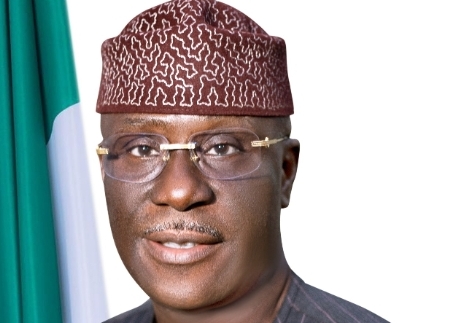
Otunba Oladele Bankole-Balogun, the Executive Chairman of Edo State Internal Revenue Service (EIRS), is a leader of diverse business interest. He is bringing his rich knowledge of the different sectors he has sat as their headman to bear in state’s tax administration. His ingenuity and focus on purpose have already begun to yield fruits, as this can be seen in the N10 billion raked in monthly as Internally Generated Revenue (IGR) in the state within the short time he took over leadership. This record is praise worthy, as the state since its existence has never recorded such feat.
Bankole-Balogun, who has practice law for over four decades and a member of different distinguished organisations, became the Executive Chairman of EIRS late 2024. Bringing innovation to bear, the astute and visionary leader embarked on a path to liven areas that before now have been considered unprofitable for taxation, thereby creating a niche for the state.
Before becoming EIRS boss, Otunba Bankole-Balogun had held positions at Cadbury Nigeria Plc. and Pfizer UK in Sandwich Kent. He had also served as Chairman of Alphabet House Ltd and Director/Board member of Allen Angus Resources Ltd. Others include Chairman of the Barking and Havering Hospitals Trust Appointments Board; the Principal Partner at Oladele Bankole-Balogun& Co, and from 2012 to 2015, he was the Federal Commissioner of the Public Complaints Commission, representing Edo State.
Birthed in 2012, as EIRS is Edo State’s sole tax administration agency responsible for the profiling, assessment, collection and management of tax revenue, including levies, penalties due to Edo State Government, under relevant laws.
The agency, however, has evolved into a modern tax authority, adopting global best practices and innovative solutions to enhance its operations. It operates with a commitment to transparency, accountability and taxpayers’ confidence by streamlining tax processes and embracing technology. The agency aims at ensuring fair and equitable tax system for all citizens and businesses in Edo State.
Saddled with the responsibilities of managing various tax types, including personal income tax (Pay-As-You-Earn, direct assessment and withholding taxes), road taxes, consumption tax, stamp duties, capital gains tax, development levy and pools betting/gaming tax, among many others.
For efficiency and effectiveness, the agency developed its online platform (ERAS Solutions) to conveniently enable taxpayers file returns, make payments and access their tax information.
This innovation move has brought in huge number of people into the taxable bracket, also saving a lot of man-hours.
To ensure compliance with tax regulations while promoting voluntary compliance among taxpayers, EIRS regularly audits it accounts and assess performance, which has transparency and boost performance, as areas of strength are identified held onto, while areas of weakness are worked upon for improvement. Within the ambit of the law and court processes, the agency can approach the courts to recover tax revenue owed government via enforcement and execution of court orders.
Born 1961 into the esteemed family of the late Chief Bankole Balogun of Igarra Akoko-Edo in Edo State, the Igarra titled chief — Oteniete of Igarra — had his bachelor’s degree in political science from the University of Ibadan in 1984, followed by another bachelor in law from the University of London, and a Postgraduate Diploma in Law from the College of Law, London. He is a member of different local and international organisations, including the Law Society of England and Wales, the Nigerian Bar Association, the International Bar Association, and the Chartered Institute of Arbitrators (UK).
Within a very short time he has provided the much-needed leadership and expected results by scaling the Internally Generated Revenue of the state for the first time to a double digit of over N10 billion monthly.
For his impressive performance in public service, ICAN in 2024 honoured him with an Outstanding Service to Accountancy Profession Award in recognition of his wonderful contribution to tax administration and revenue generation and support to the Institute of Chartered Accountants of Nigeria (ICAN) Benin and the District Society.
With Jim Pam Wayas As Executive Chairman, Plateau IGR Remains Upward Bound
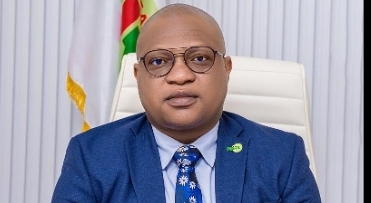
With a robust academic background and verse knowledge that spans financial accounting, auditing, taxation, risk-based audit and management accounting, Dr. Jim Pam Wayas has established himself as a formidable force in the field of finance and taxation. His proficiency in financial and management accounting, costing, auditing, tax services and financial reporting aside deep knowledge of International Financial Reporting Standards (IFRS) and International Public Sector Accounting Standards (IPSAS), has positioned him as the most valuable person to oversee the Plateau State Internal Revenue Service (PSIRS), as the Executive Chairman.
A highly accomplished and versatile chartered accountant, Wayas is known for his extensive experience in both the public and the private sectors.
Piloting the affairs of PSIRS, as the Executive Chairman, he has driven unprecedented reforms in the state’s revenue administration that has made Plateau State to witness a historic and consistent upward trajectory in its Internally Generated Revenue (IGR), recording a 96 per cent increase in less than two years.
Combining theories and practice of fiscal administration to work for him, the visionary leader has put in place innovative policies that systematically restructured PSIRS to enhanced performance, encouraged productivity and gave room for fiscal transparency, efficiency and sustainability of tax administration.
Leveraging technology, Wayas has affirmed to widen the scope of taxpayers, partner with stakeholders in the informal and formal sectors of the economy, including professional organisations to drive tax payment and at the same time foster the culture of tax compliance across the state.
Emphasising the need for grassroots approach to tax sensitisation, the scholar stressed that traditional and face-to-face methods, such as engaging directly with businesses would complement media campaigns to improve understanding of taxation among the different strata of people in the state.
According to the PSIRS chairman there are some groups of people that do not always understand what the tax agency says on the radio, especially those in the informal sector, to this end, a one-on-one encounter would help to better grasp their obligations and to know how government could support their businesses. It is for this purpose that we have to get to them on regular basis.
As part of the agency’s strategies to fulfill its plan of generating money for the state, the PSIRS is looking towards creating a more business-friendly tax environment, particularly for small and nano (nanotechnology) businesses, which were before now overlooked for taxation.
Elucidating further on his ideas, he noted: “Our intention is not to stifle businesses, but to stimulate economic activity by injecting support where necessary,” adding that “the informal sector, which controls 60 per cent of Plateau State’s GDP, remains a critical focus for tax expansion efforts.” With this, the state’s chief tax collector hopes to create a seamless way that would make all businesses in this group to come into the taxpaying fold.
With an HND in Accounting and Finance from Plateau State Polytechnic, Barkin Ladi; a Bachelor’s and Master’s in Accounting and Finance both from the University of Jos, Wayas proceeded to Nile University of Nigeria for his Ph.D. Not tired of learning, he goes in for a second PhD programme in Energy Management at Grenoble École de Management, France, but on hold because his current executive responsibilities. He also attended Harvard Kennedy School, Boston, USA, for the executive course on comparative tax policy and administration.
His professional affiliations include fellowships with the Institute of Chartered Accountants of Nigeria (ICAN) and the Chartered Institute of Taxation of Nigeria (CITN). He is also a member of the Association of Chartered Certified Accountants (ACCA), UK.
Before joining PSIRS, Wayas had held several senior roles at the Federal Inland Revenue Service (FIRS), where he distinguished himself, including being honoured as Best Staff, Finance and Accounts for the 2020 Tax Year. His recent recognition as the Plateau Man of the Year 2024 stands as a testament to his outstanding contributions to governance, tax administration, and public service in Plateau State.
Outlining the agency’s performance, Dr. Wayas revealed that in 2022 the PSIRS generated N3.9 billion, in 2023 it had N5.8 billion, but later moved to N8.8 billion and at the close of business for the year brought in about N25.8 billion.
Last year, 2024, the revenue grew to N31.4 billion, making it the first time Plateau State would achieve N30 billion threshold in revenue generation.
However, in 2025, it has promised to hit N52 billion. Being optimistic about the the figure, he disclosed that the agency started the 2025 mandate on a strong footing, and that as of January, it has collected about N3.3 billion, which is the highest ever collected in any given month when compared with that of last year, where the body generated about N1.6n in January. This impressive outing shows a significant improvement in internal revenue generation in the state.
Looking forward to increasing revenue generation, Wayas revealed that his agency will through strategic initiatives that includes the expansion of the tax net, improvement of tax administration and enhancement of revenue collection mechanisms achieve its aim for 2025.
The Executive Chairman also highlighted the importance of transparency and accountability in the management of state finances, assuring that the Internal Revenue Service (IRS) would continue to prioritise openness and accountability in its operations.
He stressed on the importance of collaboration among government agencies, security forces, and the people to ensure effective realisation of their revenue target for the year.
To make the grassroots people understand the processes of tax administration and comply to it, Wayas from time to time engages them in a townhall meetings and participates in their activities. Through this means he explains the agency’s intentions and activities, and as well gets direct feedback from them. This strategy has helped to bring in more people, especially those from the grassroots, into the tax paying group.
Commending taxpayers, in one of the taxpayers’ monthly celebrations in Bukuru, Jos south local council, Wayas appreciated the people for their contribution to the state’s revenue growth and lamented the effect debt has on the state finances, describing it as a setback to growth and development.
Stressing that government provides social amenities and other forms of infrastructure, including modern markets, with revenue from tax and he called on the people to shun anything that would slow down government activities, saying taxpayers’ contribution is key and a veritable tool to the development of the state.
Dr. Wayas noted that the revenue agency had made significant strides in revenue generation since the current administration came on board, with notable improvements in tax collection and remittances. According to him, the state’s revenue performance had been bolstered by the Internal Revenue Service’s efforts to plug leakages and enhance tax compliance.
Pressing on plans to meet this year’s target of N52 billion, the number one Plateau State tax collector plans to assiduous engage the people the more, further expand the scope of tax payers, creatively use technology to make payer to key into its platform, do more of one-on-one with people at the grassroots, stringently tighten loose ends and interface with the micro, small and medium scale enterprises with the aim of making them pay as expected.
Beyond his administrative and leadership engagements, Wayas is also a cerebral writer, passionate academic and mentor. He lectures both undergraduate and postgraduate students in the Department of Accounting at the University of Jos. He also volunteers as a tutor at the FIRS Training School, Abuja, where he teaches courses, including Introduction to taxation, and regularly supports students preparing for professional examinations through institutions such as the Jos Professional Tutors Consult and the University of Jos Consultancy.
His research interests are in the areas of public finance, taxation and financial management. His academic works include his widely acknowledged dissertation on “The Effect of Subnational Public Finance Components On States’ Fiscal Sustainability In Nigeria,” aside published contributions in reputable journals, including the Tax Academy Research Journal and Economic Bulletin.
Dr. Jim Pam Wayas, as a maverick, has continued to carve an indelible mark in the realms of public finance, academia and policy leadership.
All Hail Emmanuel Ekene Nnamani The Tech Trailblazer
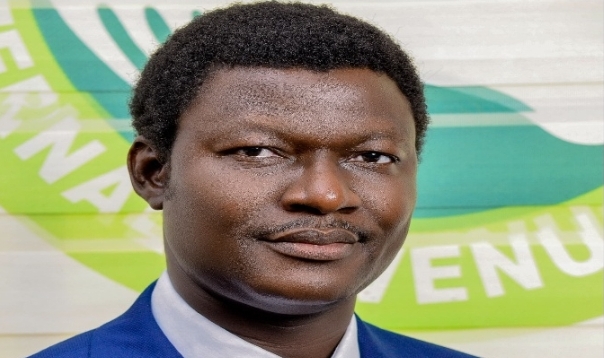
Emmanuel Ekene Nnamani is a go-getter and one with the Midas touch. He has over 21 years cognate experience in Internal Audit/Internal Control and Revenue Mobilisation. He was a Senior Control Officer/Acting Control Manager, Learning Champion and RPA Champion for the Internal Control and Enhancement Group at First Bank Nigeria Plc.
He is the Executive Chairman, Enugu State Internal Revenue Service and a Board Member at Joint Tax Board, Nigeria. He is currently championing Informal Sector tax collection in the country using technology.
Over the years, he has proven to be dependable. Prior to his appointment in Enugu State Internal Revenue Service (EIRS), he was an Internal Control and Compliance Officer at Fidelity Bank Plc; Pioneer Head of Internal Audit at Enugu State College of Education (Technical) and Account Staff at Bubbles Plaza Ltd, Enugu.
When he came on board Enugu State Internal Revenue Service (EIRS), he met an agency that was not organised and running helter-skelter. There was no unity. There was no process flow. But now the agency has been able to bring the service staff together.
The state has also been able to double its revenues and ever since, it has relied on its revenue to pay salaries of staff, no longer depending on FAAC. It has also streamlined the process for internal revenue service.
All achievements of EIRS would not have been possible if the Governor was not totally committed to exceptional governance model to make Enugu State a $30b economy before 2031 and make Enugu State the best choice for business, residence and tourism.
EIRS is the major funding arm of the Enugu State Government charged with the responsibility of collecting taxes and other revenues. Over the years, EIRS has increased the State’s Internally Generated Revenue (IGR) by executing various pioneering programs and implementing strategies which have positively impacted revenue generation and collection.
On his assumption of office at EIRS in August 2023, the monthly revenue collection of the state stood at an average of N2.3b monthly. The state ended the year with N37b. In 2024, the state revenue collection skyrocketed to N180.5b showing a growth trajectory of 387 per cent increase.
The mandate of EIRS is to ensure there is fiscal sustainability to fund critical infrastructure in preparation to attaining that economic status. “We are just beginning as we have seen that the potential of the state is just being scratched but not yet touched. We are committed to expanding the tax net but not increasing taxes. We are indeed grateful to Ndi Enugu for the massive support they have given EIRS and their compliance with our collection models. We promise our commitment to always listen to them towards their satisfaction.”
This achievement by the state owes much to the disruptive revenue collection strategies implemented by the state under the leadership of a visionary Governor, His Excellency, Dr. Peter Ndubuisi Mbah. These disruptive and innovative collection strategies include:
Central Revenue Management System:
The state implemented a central revenue management system provided by Norlics Digital Services. The CMS brought every revenue generated from MDAs under one platform where every revenue emanating from each MDA is noticeable upon payment. Every MDA was given access to monitor revenue arising from them and also allowed them analysis to see any default by the paying public. Critical Stakeholders including the Governor and Heads of MDAs were given access to this platform with simple analytics dashboard.
Authorising Multiple Payment Gateways to Collect for the State:
The State implemented multiple payment gateways collection and ensuring that every collecting payment gateway notifies the CMS for real-time reporting of their collections. Payment gateways were mandated to implement diverse collection channels including, in-branch bank collection, online collection through the official website www.irs.en.gov.ng and POS collection. This allowed competition among payment gateways, and they started deploying innovation in collection processes and advising the Service on novel collection models for implementation.
Implementation of E-Ticket Technology in the Informal Sector Collection: Collection of taxes and levies from the Informal Sector was a dead end in the past and the State dared not enter the markets and even street shops for taxes and levies collection. It was allowed for either the unions or non-state actors to intimidate residents, collect uncoordinated amounts while the State gets next to nothing. E-Ticket technology consolidated all State collections in terms of taxes and levies into one single amount and single payment. This introduced collection pattern that fits into income pattern of the businesses. Transport operators pay daily, while markets and street shops pay either monthly, quarterly or yearly. This saw daily revenue collection rising and disrupting every permutation in the ecosystem.
Elimination of Cash Collection:
The state immediately implemented zero cash collection of revenue and communicated residents to always make their payments using in-branch bank collection, online collection, POS collection or wallet collection of Informal Revenue using E-ticket. Zero Cash collection strategy worked like magic in making the revenue skyrocket immediately.
Consistent Training of Revenue Staff:
Upon assumption of office, the State implemented robust training programs that were aimed at changing the mindset of Staff and refocusing them towards sustainable revenue collection culture that stands the test of time. Thanks to PWC Nigeria, Wabio Consult and other firms and individuals that have contributed to this journey. The dedicated training programs yielded unprecedented results and ensured immediate change in tax and other revenue collection processes, reduced court and Tax Appeal Tribunal cases and gave the Service an advantage in seamless collection and reduced objections. This saw revenue rising continuously.
Provision of Work Equipment and Conducive Work Environment:
On inception of duty in 2023, we noticed that the Service lacked adequate facilities like computers, furniture, inefficient power system and internet system. We have provided over 220 laptops to our staff and staff of other MDAs, provided furniture to staff, provided solar power system with 30KVA inverters that ensures 24 hours consistent power supply and installed robust internet system.
Implementation of Consistent Communication to Residents:
The state implemented consistent communication to residents through radio programs, hand bills, billboards, use of Market Associations, Transport Unions and Chambers of Commerce. This was done by creating a dedicated Tax Marketing and Publicity Unit that has a mandate to ensure that residents understand every tax and levies being administered and how to make payments. This created feedback mechanisms that allow residents to make their complaints using dedicated phone line 08075625555 and email [email protected]. Residents felt that they have a stake in the revenue collection and opportunities to lay their complaints at any time and get their issues resolved promptly.
Governor’s Progressive Infrastructural Projects:
Enugu residents could not believe themselves with the level of critical infrastructure development by the Governor Peter Mbah’s administration. The projects include 260 Smart Green Schools are felt in every political ward of the State irrespective how remote the ward may be. Similarly, the construction of 260 Type 2 Hospitals is also noticeable in every political ward, and over 250 roads have been constructed and are still being constructed in every ward, zone and street. Revitalization of some abandoned and moribund assets such as International Conference Center, Presidential Hotel, NigerGas, Sunrise Floor Mill, United Palms Produce Ltd etc. All these gave residents confidence that the State Government belongs to the people and they are more willing to comply with payment taxes and levies.
The Enugu State Internal Revenue was recognized in 2024 by the Office of the Presidency (Bureau of Public Service Reforms) as the best Revenue Agency in ICT Integration for outstanding performance in revenue management and collection.
The Chairman was also awarded the Distinguished GovTech Trailblazer award in recognition of his leadership in revolutionising revenue collection. ThisDay Newspaper also recognised the Governor of Enugu State, His Excellency, Dr. Peter Ndubuisi Mbah with the Game Changer of the Year Award for massively increasing the IGR of Enugu State in just 19 months in office.
As the state moves towards the realization of becoming a mega city, EIRS continues to position itself as a major funding arm of the state government by putting in place structures that will ensure collection of the proper amount of revenue at the least cost while also working with MDAs to move in the same direction to realize the visions of Enugu State.
Ekene is a Fellow of the Institute of Chartered Accountants of Nigeria (ICAN); Fellow, Chartered Institute of Taxation of Nigeria (CITN), and a graduate member of Nigeria Institute of Management (NIM). He holds the prestigious Tekedia Institute’s Mini-MBA, USA. He also has MBA (Accounting) from University of Nigeria and B.Sc (Accounting) from Enugu State University of Science and Technology, Enugu.



